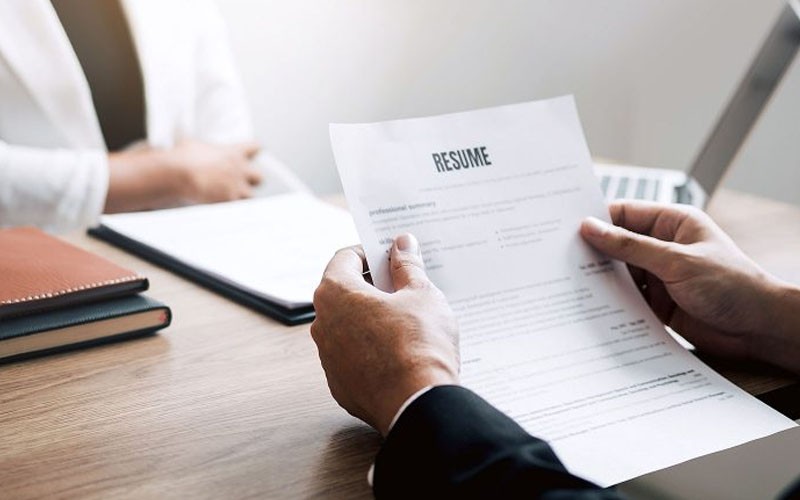
Reference checking: How to prepare and increase chance to pass?
Landed that dream interview? Congratulations! But before you start celebrating, there’s one more hurdle to conquer: the reference checking. This stage can feel nerve-wracking, leaving you wondering what your references might say. Fear not, job seeker! This guide is your roadmap to navigating reference checks with confidence and boosting your chances of landing the offer.

Steps of Recruitment Process
The recruitment process typically involves several key steps, designed to attract qualified candidates, assess their suitability, and ultimately hire the best person for the job. Here’s a breakdown of the common stages:
1. Planning and Analysis:
- Identifying the Need: The process starts with recognizing a vacancy or the need for a new position within the company.
- Job Description: A clear and concise job description is created, outlining the responsibilities, required skills, and qualifications for the role.
2. Sourcing and Attracting Candidates:
- Advertising the Job: The job opening is advertised on relevant job boards, the company website, or through professional networks.
- Utilizing Recruitment Channels: Recruiters might utilize social media platforms, professional organizations, or employee referrals to source potential candidates.
3. Screening and Shortlisting:
- Application Review: Resumes and cover letters submitted by candidates are reviewed to assess their qualifications and fit for the job description.
- Pre-screening Calls/Online Assessments: Shortlisted candidate might go through short phone interviews or online assessments to further evaluate their skills, working experience and suitability.
4. In-Depth Evaluation:
- Interviews: Selected candidates are invited for in-depth interviews with hiring managers and potentially other team members. These interviews delve deeper into the candidate’s experience, skills, and cultural fit.
- Reference Checks: Employers may contact references provided by the candidate to verify information and gain insights into their work performance and behavior.
5. Selection and Offer:
- Evaluation and Selection: After all interviews and assessments are complete, the hiring team evaluates the candidates and selects the one who best fits the role and company culture.
- Job Offer: A formal job offer is presented to the chosen candidate, outlining the salary, benefits, and start date.
6. Onboarding:
- Once a candidate accepts the offer, the onboarding process begins. This involves introducing the new hire to the company culture, team members, and their role. It also includes providing necessary training and setting clear expectations.
Additional Considerations:
- The specific steps and their order may vary depending on the company size, industry, and the seniority of the position being filled.
- Some companies might utilize additional steps like skills tests or presentations during the interview stage.
- It’s important to ensure the recruitment process is fair, unbiased, and compliant with labor laws.
By following a well-defined recruitment process, companies can attract top talent, make informed hiring decisions, and build a strong and successful workforce.
What is reference checking?

Which step of requirement process is reference checking in?
In the recruitment process, reference checking is a method used by employers to verify the information provided by a job candidate. This typically involves contacting previous employers, supervisors, colleagues, or sometimes even references listed by the candidate themselves.
In the typical recruitment process, reference checking falls within the 4. In-Depth Evaluation stage.
Here’s a breakdown of why:
- The initial stages (1. Planning & Analysis, 2. Sourcing & Attracting Candidates, 3. Screening & Shortlisting) focus on identifying potential candidates through resumes, cover letters, and initial assessments.
- After shortlisting, the focus shifts to in-depth evaluation (4. In-Depth Evaluation) of the most promising candidates. This is where reference checks come in.
- By contacting references, employers can gain valuable insights from previous employers, supervisors, or colleagues about the candidate’s work ethic, skills, achievements, and behavior – information that’s not readily available from resumes or interviews.
- Reference checks provide an outside perspective, complementing the information gathered from the candidate directly during interviews.
Following the in-depth evaluation stage, the recruitment process moves on to selection and offer (5. Selection & Offer) and onboarding (6. Onboarding) of the chosen candidate.

Details of reference checking
Here’s a breakdown of what reference checking entails:
- Verification: Employers use reference checks to confirm details on a candidate’s resume, such as job titles, employment dates, and responsibilities.
- Evaluation of Skills and Work Performance: By speaking with references, employers can gain insights into the candidate’s skills, work ethic, achievements, and contributions in previous roles.
- Behavioral Assessment: Reference checks can shed light on the candidate’s work style, communication skills, teamwork abilities, and how they handle pressure or challenges.
- Cultural Fit: Employers might use reference checks to get a sense of whether the candidate aligns with the company culture.
Benefits of Reference Checking:
- Reduced Hiring Risk: Verifying information and gaining insights into a candidate’s work history can help employers make informed hiring decisions and avoid bad hires.
- Predicting Future Performance: References can provide valuable insights into a candidate’s past behavior, which can be indicative of their future performance in the role.
- Completing the Picture: While resumes and interviews offer a self-reported perspective, reference checks offer an outside view of the candidate, providing a more holistic picture.
Things to Consider:
- Focus on Job-Related Information: Ensure reference checks target information relevant to the specific job requirements and company culture.
- Candidate Consent: Always obtain written consent from the candidate before contacting their references.
- Maintaining Confidentiality: Keep reference conversations confidential and only discuss job-related aspects of the candidate.
Overall, reference checking is a crucial step in the recruitment process. By contacting references, job seekers can gain valuable insights into a candidate’s qualifications and suitability for the role, ultimately leading to better hiring decisions.
Tips of candidates to prepare for and increase their chances of success during a reference check

Here are some tips for candidates to prepare for and increase their chances of success during a reference check:
Before the Interview Process:
- Choose References Wisely: Select individuals who can speak to your skills, work ethic, and achievements relevant to the job you’re applying for. Ideally, choose previous supervisors, colleagues who collaborated closely with you, or clients you’ve impressed.
- Update Your References: Give your references a heads-up that you might be listing them for a job and briefly explain the position you’re applying for. This refreshes their memory about your work and allows them to prepare positive remarks.
- Practice with Common Reference Check Questions: Research and anticipate potential questions employers might ask your references. Prepare concise and positive talking points that highlight your strengths and contributions in previous roles.
During the Interview Process:
- Be Transparent with Your References: Inform them about the job description and the company culture. This context helps them tailor their responses to emphasize your suitability for the role.
- Express Gratitude: Thank your references for their time and willingness to speak on your behalf.
Additional Tips:
- Maintain Positive Relationships: Building and maintaining good relationships with former employers, supervisors, and colleagues goes a long way. When past connections hold you in high regard, they’re more likely to provide positive references.
- Be Honest and Ethical: While it’s okay to highlight your strengths, avoid bad-mouthing former employers or colleagues. Focus on presenting yourself in a professional and positive light.
- Follow Up After the Interview: Thank the employer for their time and reiterate your interest in the position.
See also:
